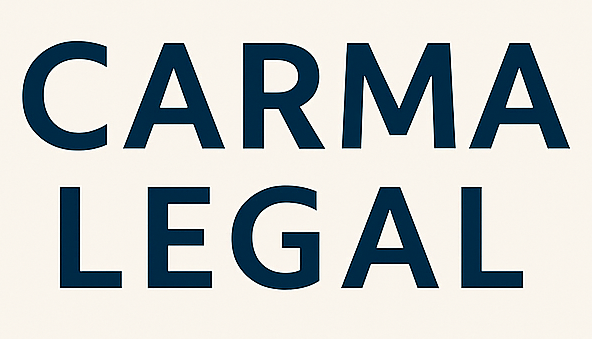When you or a loved one has endured a life-altering accident, securing experienced legal advocacy is essential. A serious injury lawyer can guide you through complex claims, fight for maximum compensation, and pursue justice on your behalf. From gathering evidence to negotiating with insurance companies and, if necessary, representing you at trial, a dedicated attorney protects your rights and helps address mounting medical bills, lost income, and long-term care needs.
Understanding serious injury claims
A serious injury claim involves harm so severe that it reshapes daily life and requires extensive medical treatment. You face not only physical pain but also emotional strain, financial pressure, and uncertainty about the future. A knowledgeable attorney can help you leverage the full legal framework to secure compensation that covers immediate and ongoing needs.
What qualifies as a serious injury
Serious injuries typically result in permanent impairment, extended hospitalization, or disability. Qualifying conditions often include:
- Traumatic brain injury or concussion
- Spinal cord damage leading to partial or full paralysis
- Amputation of a limb or digit
- Severe burns requiring grafts or skin reconstruction
- Life-long cognitive or mobility limitations
When your injury disrupts work, family roles, or personal independence, you need a legal advocate who understands the stakes. For specialized representation, consider a traumatic brain injury attorney or a paralysis injury attorney.
Common catastrophic injuries
Catastrophic injuries demand a comprehensive legal approach due to their complexity and significant lifelong impact. Examples include:
- Brain trauma: working with a tbi lawyer ensures access to medical experts and neuropsychological evaluations
- Spinal cord damage: a spinal cord injury lawyer or severe spinal injury attorney can secure funds for mobility aids and rehabilitation
- Amputations: an amputation lawyer helps cover prosthetics, therapy, and adaptive equipment
- Severe burns: a burn injury lawyer or severe burn accident attorney fights for reconstructive surgery and pain management
- Permanent disabilities: a permanent disability lawyer guides you through lifetime care planning
By focusing on these specialized areas, your attorney can develop an individualized strategy that addresses both medical realities and legal challenges.
Wrongful death cases
When an accident proves fatal, families may pursue a wrongful death claim to recover funeral expenses, lost financial support, and emotional damages. A compassionate advocate—such as a wrongful death lawyer or wrongful death attorney for families—can help you:
- File a claim within statutory deadlines
- Establish liability and causation
- Seek compensation for lost earnings and companionship
- Pursue punitive damages in cases of gross negligence
For specialized support, you might also consult a compensation lawyer for wrongful death or a survivor benefits claim lawyer.
Estimating potential compensation
Calculating fair compensation involves a detailed assessment of economic and non-economic losses, as well as any punitive damages your case may warrant. According to Swartz Law, attorneys weigh factors such as medical expenses, future care costs, and emotional suffering to arrive at an appropriate valuation [1].
Economic damages
Economic damages cover quantifiable losses related to your injury, including:
- Medical expenses: hospital stays, surgeries, medications
- Lost wages: current and future earning capacity
- Rehabilitation costs: physical therapy, occupational therapy
- Long-term care: assisted living, home health services
- Property modifications: wheelchair ramps, vehicle adaptations
Non-economic damages
Non-economic damages account for intangible hardships, such as:
- Pain and suffering
- Emotional distress
- Loss of enjoyment of life
- Loss of consortium—through a loss of consortium claim attorney
Punitive damages
In cases of egregious misconduct, courts may award punitive damages to penalize defendants and deter similar behavior. These awards vary widely by jurisdiction and require proof of intentional or grossly negligent actions.
Types of damages at a glance
| Damage type | Description | Typical examples |
|---|---|---|
| Economic | Quantifiable financial losses | Medical bills, lost income, rehabilitation costs |
| Non-economic | Compensation for intangible harms | Pain and suffering, emotional distress |
| Punitive | Additional penalties for reckless or malicious acts | Punishments beyond actual losses |
Exploring your lawyer’s role
A serious injury attorney orchestrates every phase of your claim, leveraging legal expertise and negotiation skills to protect your interests. Your legal team will typically handle:
Investigation and evidence gathering
Your lawyer assembles documentation to prove liability and damages, including:
- Police and accident reports
- Medical records and expert evaluations
- Witness statements and surveillance footage
Because catastrophic injuries often involve complex medical issues, attorneys frequently retain specialists—from neurologists to vocational experts—to build a robust case [2].
Negotiating with insurance companies
Insurance adjusters aim to minimize payouts, but your attorney:
- Prepares a demand letter outlining your claim and supporting evidence [3]
- Engages in back-and-forth negotiations to secure fair settlement offers
- Counters lowball proposals and, if needed, brings in mediators to facilitate resolution
Trial and litigation
If negotiations stall, your lawyer will:
- File a lawsuit and guide you through the discovery phase, the longest stage of most personal injury cases [3]
- Conduct depositions, expert interviews, and pretrial motions
- Represent you at trial before a judge or jury, advocating fiercely to prove negligence and secure the full compensation you deserve
Navigating the legal process
Understanding each step in your case can ease anxiety and set realistic expectations.
Initial consultation
During your first meeting, you’ll discuss:
- Facts of the accident and your injuries
- Medical treatment history and prognosis
- Potential legal strategies and expected timelines
- Contingency fee arrangements—meaning you pay only if your attorney wins
Filing and discovery
Once your attorney files a complaint:
- The defendant responds formally
- Both sides exchange documents, interrogatories, and depositions
- You and your attorney address challenges, such as proving causation or overcoming comparative fault defenses
Settlement or trial
Most serious injury claims settle before trial. However, if you can’t reach an agreement, your attorney will:
- Prepare for trial logistics, from jury selection to opening statements
- Present evidence, cross-examine witnesses, and argue motions
- Pursue a verdict that reflects the full scope of your losses
Choosing the right lawyer
Not all attorneys handle catastrophic injury claims equally. Key factors in your decision include:
Experience and specialization
Seek an advocate with a proven track record in high-stakes cases:
- A personal injury lawyer catastrophic injury focuses on complex, long-term claims
- A severe accident lawyer brings knowledge of crash dynamics and liability issues
Resources and support
Ensure the firm has:
- Access to medical and vocational experts
- Paralegal teams for document management
- Trial preparation capabilities, such as mock jury sessions
Fee structures and timelines
Most serious injury attorneys work on contingency, typically collecting 30–40 percent of your recovery. Discuss:
- How expenses are advanced
- When fees and costs are deducted
- Expected case duration, which can range from several months to a few years
Taking the next steps
Facing a catastrophic injury or wrongful death claim can feel overwhelming, but you do not have to navigate this journey alone. By partnering with an experienced serious injury lawyer, you gain an advocate who understands your challenges, fights for your rights, and strives to secure the resources you need for recovery and stability.
If you or a family member has suffered a severe injury, reach out today for a free consultation with a dedicated catastrophic injury lawyer. Your future and your family’s well-being deserve nothing less than skilled, compassionate legal support.








